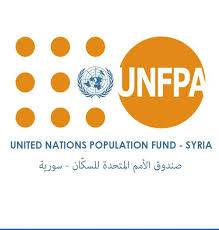The United Nations Population Fund (UNFPA) has facilitated 10 safe deliveries and provided antenatal care to over 187 pregnant women at the Internally Displaced Persons (IDP) camp in Makurdi, Benue State.
UNFPA Humanitarian/Sexual and Reproductive Health (SRH) Analyst, Dr Matthew Onoja, disclosed this on Tuesday in an interview with the News Agency of Nigeria (NAN) in Makurdi.
Onoja said that the agency is rendering sexual and reproductive health services, including maternal healthcare, family planning, prevention and response to gender-based violence, mental health and psychosocial support services, among other healthcare services.
The SRH Analyst stated that 187 pregnant women visited the UNFPA women and girls safe space and clinic for antenatal care.
He said that UNFPA had made available to every visibly pregnant woman a delivery kit, also known as “mama kits”, to support their labour and delivery when due.
“With the crisis in Yelwata, there was a call for UN agencies to support the state and provide care for those displaced.
“The government established the Yelwata IDP camp at the New International Market. UNFPA responded quickly within the first week and has been on the ground supporting the vulnerable population to save lives and reduce suffering.
“Since we came, we’ve distributed about 1,000 dignity kits to vulnerable women and girls. These kits help to preserve the dignity of women and girls, as they make available to them essential everyday items needed to carry through life.
“Items in the dignity kit bag include reusable sanitary pads, underwear, bathing soap, detergent for washing, wrappers, towels, footwear and many more, including a whistle which will attract immediate support for a woman or girl in the event of sexual harassment,” he said.
Onoja said that UNFPA treated 35 women and girls for sexually transmitted infections (STIs) and provided prevention messages on gender-based violence (GBV).
He stated that the agency had been creating awareness of the importance of reporting any cases of GBV that arise, adding that 2036 persons have so been sensitised.
According to him, they have also provided mental health and psychosocial support for those affected by the trauma of the crisis.
“Our team includes health workers like doctors, nurses, midwives, and social workers, and we are regularly engaging with the community to raise awareness.
“We’ve also engaged with adolescents to give them hope for the future and to support their education at the school in the camp.
“We’ve also provided medications for common illnesses like malaria in pregnancy and urinary tract infections, which are common among pregnant women.
“For more serious cases, we’ve referred women to higher levels of care to ensure safe deliveries.
“We’ve brought interagency reproductive health kits to the camp, which we’ve used for interventions and shared with other partners to ensure continuous service delivery,” he added.
The humanitarian/SRH analyst said that the agency also provided family planning services, especially to young women who have had multiple pregnancies.
He said that the services help the women’s bodies to recover from the previous pregnancy, reduce the risk of dying from future pregnancies, support their infant child to grow well and prepare them adequately for future childbirth while maintaining their overall health and well-being.



